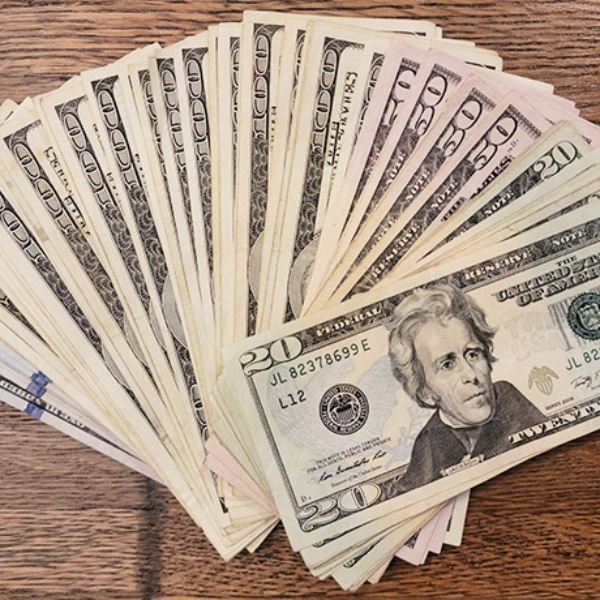Many people wonder about cash should the economy collapse or another disaster scenario arise. In this guide to survival cash we ask – how much cash should a prepper really have?
The Ultimate Guide to Survival Cash: How Much You Really Need
In a world where digital transactions and plastic cards dominate our financial landscape, the importance of having a sufficient supply of physical cash often gets overlooked. However, when faced with an unexpected emergency, such as a power outage after a natural disaster or a widespread crisis, survival cash can be your lifeline. In this comprehensive guide, we will delve into the critical aspects of survival cash, helping you understand not only how much you need but also where and why.

Assessing Your Survival Cash Needs
Determining the ideal amount of emergency cash to keep on hand is not a one-size-fits-all equation. It varies depending on your unique circumstances, financial situation, and the size of your household. However, experts generally recommend having enough cash to cover at least one month of your essential living expenses. These expenses typically include food, water, gas, and other utilities but exclude mortgage payments or other loans.
Understanding that achieving this one-month goal can be challenging for many, it’s essential to start small and gradually build your emergency cash fund. To calculate your specific needs, take time to review your monthly expenditures and consider your family size and location. Your goal should be to accumulate the bare minimum required to sustain your household during a crisis.
Where to Safely Store Your Survival Cash
While having the right amount of cash is crucial, it’s equally important to store it securely. Theft is a genuine concern when dealing with significant sums of money. Here are some key principles to follow when deciding where to safeguard your survival cash:
1. Diversify Your Cash Locations
Avoid storing all your cash in a single place. If your home were ever targeted by thieves, dispersing your money in various secure locations reduces the risk of losing it all.
2. Avoid the Master Bedroom
The master bedroom is often the first place burglars search for valuables. Avoid hiding your emergency cash in obvious locations like sock drawers or under mattresses.
3. Creative Hiding Spots
Thinking outside the box can help you find ingenious hiding spots for your cash. Consider using diversion safes, such as a hollowed-out book or a reusable coffee cup stored in kitchen cupboards. These everyday items can discreetly conceal your funds.
4. Invest in a Hidden Safe
For a more secure option, invest in a fireproof and waterproof safe. Ensure that it’s bolted to the ground or securely anchored to prevent theft. Options include attic or basement safes, wall safes disguised behind paintings, or those resembling electrical boxes.
5. Keep the Two Principles in Mind
Remember the two fundamental principles: diversify your cash storage locations and avoid the master bedroom at all costs. Adhering to these principles ensures your survival cash remains safe and accessible.
The Significance of Bill Denominations
Beyond the total amount of cash you have, the denominations of your bills play a crucial role in your preparedness. When obtaining cash from a bank, you’ll likely receive larger bills, such as $100s, $50s, or $20s. While these bills conserve physical space, they may not be practical during an emergency.
Consider a scenario where your town experiences a power outage due to a severe blizzard. You head to the supermarket to purchase essential supplies, and the total comes to $23.72. However, you only have $100 bills, and the store has run out of change. In this situation, having smaller bills and coins could make all the difference.
To ensure you’re prepared for any situation, request smaller denominations, such as $10s and $20s, from your bank when obtaining cash. This strategy allows you to navigate emergencies without the inconvenience of limited change.
In Conclusion
In conclusion, survival cash is a crucial component of emergency preparedness that should not be underestimated. It serves as a financial safety net when digital transactions and credit cards become impractical during crises. To recap the key points:
- Aim to accumulate enough cash to cover at least one month of your essential living expenses.
- Diversify your cash storage locations and avoid the master bedroom to enhance security.
- Consider creative hiding spots and invest in a hidden safe.
- Opt for smaller bill denominations to ensure practicality during emergencies.
In a world filled with uncertainties, being prepared with an adequate supply of survival cash can be the difference between facing a crisis with confidence or being caught unprepared. So, take action today and secure your financial resilience for whatever challenges lie ahead.
Take a look at more prepper stuff here.
